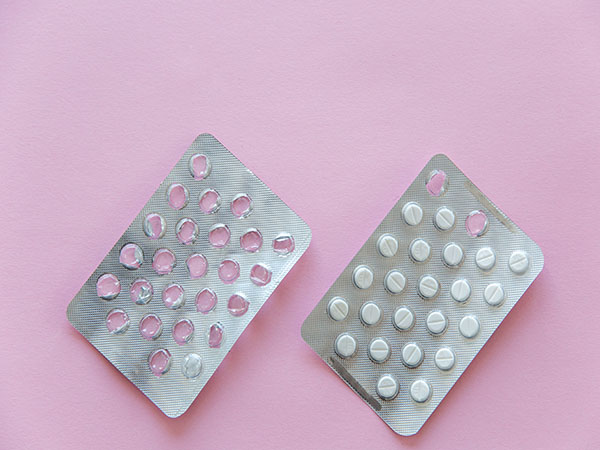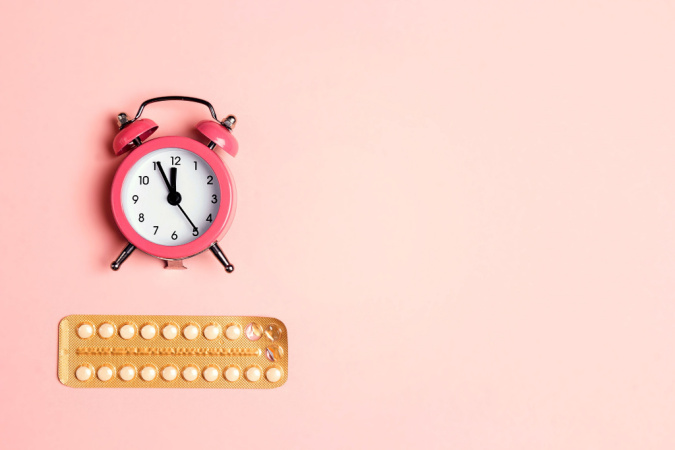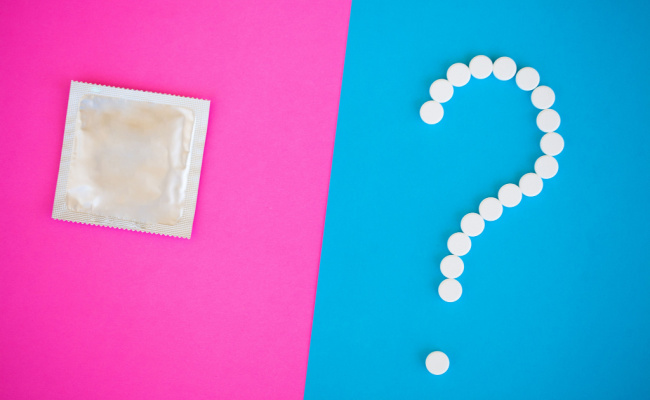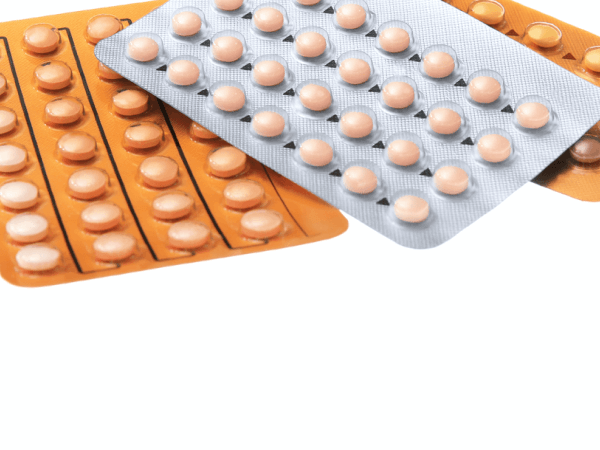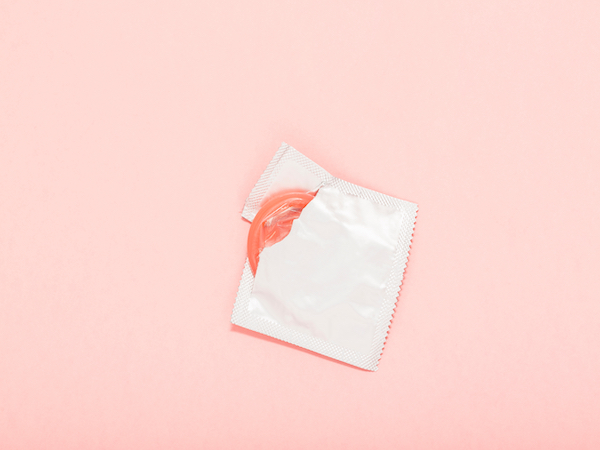Estrogen and progesterone are two naturally occurring hormones produced within the ovaries. Hormonal birth controls are available with estrogen and progesterone or progesterone only (the “mini pill”). These forms of contraceptives are made up of synthetic hormones because when the body carries more hormones than usual, it prevents an egg from being released during menstruation.
Stopping birth control means that eggs will begin to release from the ovaries again, making it possible for sperm to fertilize them. Simply put, when you stop birth control, you may get pregnant.
Which type of hormonal birth control someone chooses will greatly depend on their lifestyle, what works best for them, and when they’d like to start birth control — it’s certainly not a one-size-fits-all medication.

Get birth control delivered to your door
Fast online assessment with a Canadian nurse practitioner. Choose your method, get your prescription, never run out.
There are six different types of hormonal birth control: the pill, the patch, the ring, the shot, IUD, and the implant. While some opt for the get-it-and-forget-it style of the IUD or the implant, many still prefer a daily routine of taking a pill every day.
How does hormonal birth control work?
- The pill is one of the most common forms of hormonal birth control in the world. It’s taken at the same time every day for a period of either three weeks at a time with one week off for your period, or continuously every day in order to avoid getting your period. Different brands will offer different amounts of estrogen and progesterone.
- The patch is a form of hormonal contraceptive which is placed on the skin weekly (like a band aid).
- The ring is inserted into the vagina once monthly. This way, hormones are absorbed into the vaginal lining, preventing pregnancy.
- The shot contains progesterone only and is administered by a healthcare practitioner once every 12 weeks.
- The IUD is available in both hormonal and non-hormonal formats, offering longer term protection. It requires a healthcare practitioner to insert it into your vagina every three to five years on average.
- The implant includes progesterone which is released through a thin rod inserted into your arm by a doctor, which can provide up to three years of protection.
While each method of hormonal birth control has its own set of advantages and risks, they are all most effective for preventing pregnancy when used perfectly.
Working hard to never miss a pill, not take it late, or not to forget to change out your patch will improve your rate of protection against preventing pregnancy.
No method of contraception offers 100% protection against pregnancy and none offers protection against STIs, so you should speak to a healthcare professional for medical advice if you’re looking to learn more about other ways in which you can protect yourself against both.
Hello, condoms!
Why choose to stop taking birth control pills?
While the most common reason for someone to stop taking birth control pills is to get pregnant, there are many other reasons that could lead someone to want to quit it completely.
As mentioned before, hormonal birth control is synthetic-based. For those considering transitioning over to a more holistic lifestyle, they might choose to ditch the pill and let nature take its course.
Every form of hormonal birth control is unique and it makes sense that not everybody will react the same. You can experiment with different methods and brands until you find which birth control is best for you, and this can take some time, but it’s also possible that you may decide that none suit you — that doesn’t make you the exception, that just makes it your personal preference.
How should you stop taking birth control?
Stopping birth control is likely a decision you will want to make with the guidance of your doctor, but after you’ve done so, in most cases, stopping birth control really is as simple as waking up one morning and not taking another pill, inserting a new ring, or re-applying a new patch.
It doesn’t necessarily matter where in your menstrual cycle you find yourself, although some folks may wish to wait to quit it until they reach the end of their medication supply so that they know when they can expect their next period.
If you’ve opted for an IUD or implant, you will have to make an appointment with your doctor to have this removed. You can expect to be uncomfortable during the procedure, but most people don’t have any issues. If any side effects do come about, stick around your doctor’s office in case you require further assistance.
What happens when you stop taking your birth control pill?
Quitting your hormonal birth control means that your protection against pregnancy will typically diminish in a matter of days after stopping, so you might want to consider picking up a form of alternative protection like condoms if getting pregnant isn’t what you’re after.
If it is, it’s worth noting that no matter how long you’ve been on the pill, your ability to get pregnant after being on hormonal birth control will not be negatively impacted. For reference, one study from 2018 showed that after 12 months of discontinuation of contraception, on average 83.1% of women were able to conceive.
Side effects to expect
Our bodies have truly incredible ways of bouncing back — in most cases you can rest assured that your pre-birth control body and self will quickly return. Just as many folks who start birth control don’t experience major side effects, many go off of the pill without issue.
It’s always good practice, though, to keep in mind what some of the possible side effects could be so that there aren’t any surprises. You can never be too prepared!
Acne
It’s no secret that many people go on birth control to control acne, so it unfortunately does have the potential to creep back into your life after stopping birth control, as this is a sign of your body readjusting.
Not to fear, though — it usually won’t stick around for long, especially if you didn’t struggle with it much before. If it has always been a concern of yours, birth control or not, it may be worth learning what you need to know about acne and how to treat it as you move forward without hormonal contraception.
Your period
It may also take some time (up to three months or more) for your period to regulate after stopping birth control. You shouldn’t expect for your pre-birth control periods to return, either. Our bodies are constantly changing and so we can expect our periods to change, too.
You’d be right to anticipate some irregularity in terms of your period as it may sometimes be lighter, heavier or longer or shorter than what you’re used to.
Hair loss
While it’s quite a rare side effect of stopping birth control, the good news is that it isn’t likely to be an ongoing problem. If it continues, you should seek medical advice as it could be linked to a different issue.
The science behind it goes like this: think of every follicle of hair on your body growing at its own pace — some faster and some slower, with your hormones having a major influence on the rate of that growth.
The additional hormones that birth control provides will actually extend the growth phase of your hair follicles, so when you stop the pill, your hair may remain in what’s called a “resting” phase, followed by a “shedding” phase. This is because birth control will have kept your hair follicles in a growth phase for a certain extended period of time.
PMS
The dreaded premenstrual woes can make a swift comeback — headaches, stomach cramping, bloating, mood swings, breast tenderness, back pain, the whole gamut. Everyone is different of course, so they may not all come back in full swing or even all at once. It won’t hurt to keep some Tylenol and a hot water bottle on hand in case they do!
Weight fluctuation
There’s no clear link between hormonal birth control and weight gain or weight loss, so you shouldn’t expect your weight to fluctuate too much when you stop. The only exception to this is if when you started on birth control you gained some weight or your breast size increased due to the hormonal contraceptive — only then could you expect to shed a few pounds after stopping birth control.
Otherwise, if you notice you’re slightly heavier or lighter on the scale than usual, it could simply be because of water retention or bloating as your body adjusts.
Libido
Birth control can be known to cause vaginal dryness and lowering sex drive in some cases, so by returning your body to its natural lubrication, you may just be rejuvenating your libido while you’re at it. Take that as you will!
Managing side effects
Most of the PMS symptoms can be treated as you have likely tended to them in the past — OTC pain medications, regular exercise every day, drinking enough water, and getting enough sleep every night.
If any side effects persist, or if you experience anything different, it’s recommended that you consult with a doctor as they could be unrelated to stopping birth control.
Getting into the practice of having a good self care routine will help boost your overall wellness, and most important of all, don’t forget to be kind, forgiving, and patient to yourself during this period of readjustment.
